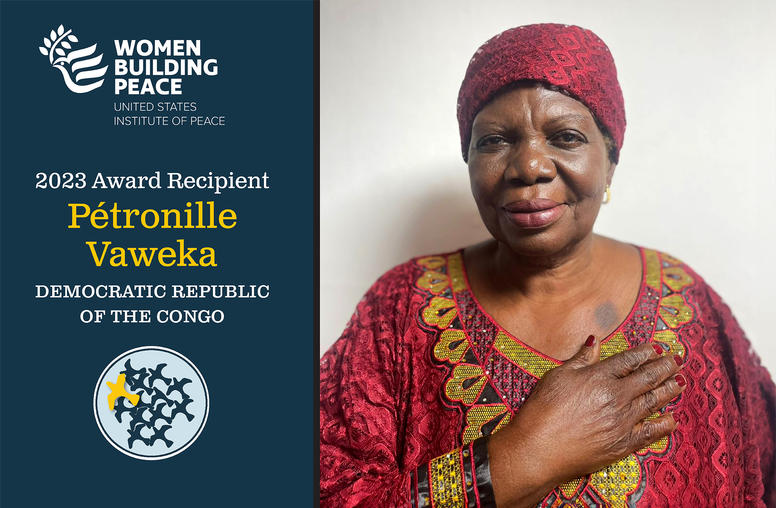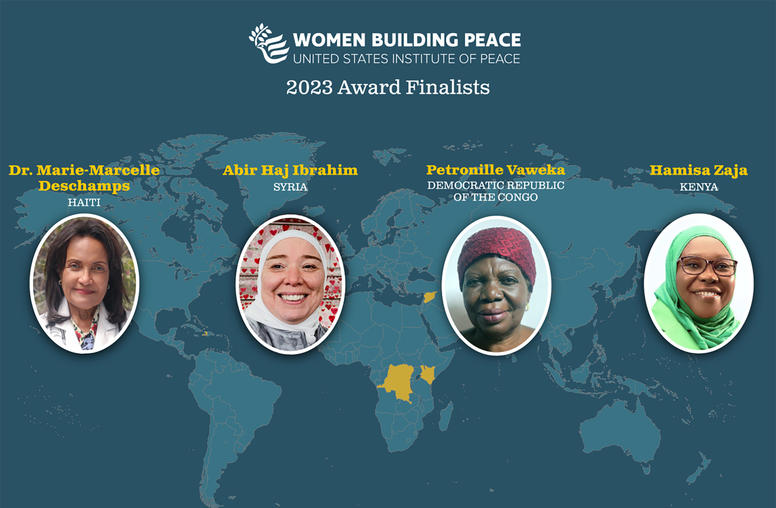Princeton Lyman Joins U.S. Institute of Peace as Senior Advisor
For Immediate Release, May 6, 2013
Contact: Steven Ruder, 202-429-3825
(Washington) – Ambassador Princeton N. Lyman joined the U.S. Institute of Peace as a senior advisor, USIP announced today. He stepped down in March as President Barack Obama’s special envoy for Sudan and South Sudan, a position he had held since March 10, 2011. His work at USIP will focus on the roles of special envoys, such as when and under what conditions they are most effective, as well as how the U.S. government can most effectively interact with rogue states with which the U.S. nevertheless has important interests.
“Ambassador Lyman brings an immense breadth and depth of knowledge to USIP, particularly in African affairs,” said USIP President Jim Marshall in announcing the appointment. “Our staff has worked closely with him over the years, especially through our programs in Sudan and South Sudan. We are glad that his long-standing relationship with USIP will continue in this new role.”
As special envoy, Lyman led U.S. diplomatic efforts in Sudan and South Sudan following the 2011 referendum on South Sudanese independence. Immediately preceding his tenure as special envoy, he served as U.S. senior advisor on North-South negotiations, where he led the U.S. team focused on supporting on-going negotiations between the parties to Sudan’s 2005 Comprehensive Peace Agreement.
The U.S. Institute of Peace Press published Lyman’s book on South Africa’s transition from apartheid to democracy, Partner to History: The U.S. Role in South Africa's Transition to Democracy, in 2002. He was also a senior fellow at USIP from 1999 to 2000.
“Ambassador Lyman’s experience will be a tremendous asset to USIP,” Marshall said. “He has seen diplomacy, negotiation, and development efforts at all levels of the government, and worked on many issues at the core of the Institute’s mission.”
Lyman has previously worked as the Ralph Bunche Chair for Africa policy studies at the Council on Foreign Relations and as an adjunct professor at Georgetown University. From 1999 to 2003, he was executive director of the Global Interdependence Initiative at the Aspen Institute.
He has also served as deputy assistant secretary of state for African affairs (1981-1986), U.S. ambassador to Nigeria (1986-1989), director of refugee programs (1989-1992), U.S. ambassador to South Africa (1992-1995), and assistant secretary of state for international organization affairs (1996-1998). From 2008-2010, he was a member of the African Advisory Committee to the United States Trade Representative. He began his government career with the U.S. Agency for International Development and served as USAID director in Addis Ababa, Ethiopia, from 1976 to 1978.
###
The United States Institute of Peace is an independent, nonpartisan conflict management center created by Congress to prevent and mitigate international conflict through nonviolent means. USIP works to save lives, increase the government’s ability to deal with conflicts before they escalate, reduce government costs, and enhance national security. USIP is headquartered in Washington, DC. To learn more, visit www.usip.org.

